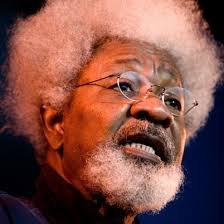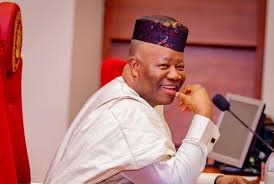By SHEDDY OZOENE
Let me state upfront that I was not one of the people excited about Nigeria’s change to the old national anthem. When, in 1978, the military, in a rather whimsical manner, replaced that national anthem with the one that we used till last month, they did not offer any plausible explanations. And there is none either for its reintroduction on May 29, except, perhaps, to shake the ground as another mark of President Tinubu’s 1st anniversary in office.
In any case, none of the two is particularly inspiring and only a few people have bothered to attach any deep philosophical undertone to them.
National anthems speak to the soul. It inspires nations and her citizens. It is a country’s plainsong, a chorale for the leaders and the led. It is the spiritual awakener, the potent hymn for war and the calming melody for peace. For us here, it may not be anything more than a part of a national ritual, a song for occasions that announce the leaders while the people sing along the wordings that hold no meaning to them.
So, for the sake of it, one must ask where the old anthem trumps the new in those ennobling aspects that so endeared it back into our hearts. My guess is that it is in the first stanza that urges unity and tolerance in one country clogged by so many nationalities:
though tribe and tongue may differ,
in brotherhood we stand…
The two lines are enough to bring it back, if indeed we stand together as brothers in spite of our tribal differences. Sadly, we don’t, thanks to a leadership that has over the years drawn lines of hate against the people based on their tribes and their tongues. Thanks to them, the cleavages between the various tribes have become so accentuated that among them, distrust and mutual suspicion have become standard practice.
The old, now new, national anthem “Nigeria, We Hail Thee” was adopted as our national anthem at Independence on October 1, 1960 and in spite of its tokunbo origin, many would say that the lyrics written by Lillian Jean Williams, a British, tried to capture the nation’s expectations of the time. It was fit for purpose in the sixties when we struggled with nationhood. It was fit for purpose as we struggled to rebuild the nation from the ruins of the civil war of 1966-1970.
Just when we thought the war had ended and the rebuilding had started, the anthem that spoke about brotherhood was rested in 1978 as if to allow the military that held sway at the time, to recall the good old battlefront tactics that saw only friends and enemies and not much to do with cohesion. Now, as the switch has elicited among Nigerians all manner of comments and expectations of old, the question to ask is: is that anthem still fit for purpose?
Nigerians are more divided now than they were in 1978 when it was shelved. Ethnic hatred, especially against citizens of the South-East, for instance, has become more or less, a state policy. The country is stuck in the mire of corruption and official nepotism where the leader favours his tribe over and above others in the allocation of the resources of the state.
I must confess my likeness for the German national anthem, ‘Deutschlandlied’, which has been in existence since 1922. The lyrics are as inspiring as the accompanying music adapted from the 1797 classical composition by Joseph Haydn. Even if you’re unable to translate the wordings to English to fully understand their meaning, somehow your bristles still get to stand when the words combine with the sounds. And the Germans, like all nations do to their anthems, live true to its words.
If the reinstated national anthem sounds good in the first stanza, it sounds even better in the second where it extols the people to hand to the future generations, a banner without stain.
Our flag shall be a symbol
That truth and justice reign
In peace or battle, honour’d,
And this we count as gain,
To hand on to our children
A banner without stain.
But, there are obvious stains on our banner of nationhood today and truth and justice no longer reign. Nigeria’s banner now flutters in the hazy wind with all manner of stains in all shades of colours: the red; the orange; the yellow; the green; the blue; the intra and the violet, all depicting different dimensions of absurdity, nepotism, injustice, inequality and official corruption.
We have over the years promoted hate and thought our children to cut corners to achieve greatness. We have created inequality among the citizens and allowed some people to climb the ladder on the backs of their fellow Nigerians. We have promoted a system that rewards ineptitude and evil and permitted the ruling class to brazenly lord it over the hapless common man.
If indeed the country is retracing its steps from the years of injustice, corruption and hatred against one another, it is possible to find inspiration in the reinstated anthem. But we must return to that path of rectitude by consciously withdrawing from the hideous path we had walked. A nation on a process of rebirth should not shy away from facing its history with courage and redress those unjust acts and obnoxious policies that divide the people and foster hatred.
If indeed it is desirous of cleaning the stains on its banner, it must go beyond the perfunctory act of reintroducing an old anthem. Only then would the anthem’s wordings make any meaning, and only then would God grant that one request for Nigeria’s greatness that the last stanza begs.
Sheddy Ozoene is the Vice President (East) of the Nigerian Guild of Editors.



















